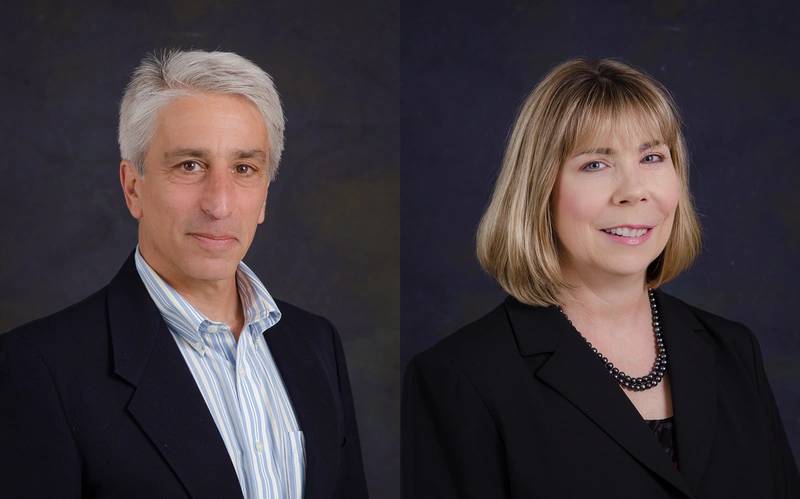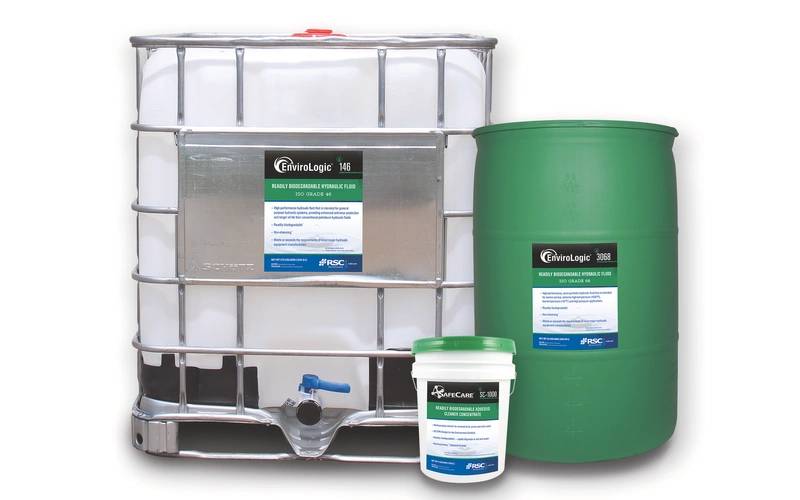Webinar to Clarify VGP EAL Requirements
Complying with New EPA Lubricant, Cleaner Requirements for Marine, Offshore Industries
The U.S. EPA’s 2013 Vessel General Permit (VGP) requirements are now in place, requiring the use of environmentally acceptable lubricants (EALs) in oil to water interfaces for vessels over 79 feet. The VGP revision also requires any above water line hull cleaning or deck washdowns resulting in discharge to be conducted with appropriate cleaners and detergents.
A webinar, Complying with New EPA Lubricant, Cleaner Requirements for Marine, Offshore Industries, will be held on Thursday, June 12, 2014 at 2-3:15 p.m. EDT to help clarify the VGP EAL rules and requirements.
Hosted by RSC Bio Solutions along with Maritime Reporter and Engineering News, MarineLink.com and Marine News, the webinar will explain the 2013 VGP EAL regulations and what impact they now have on marine transportation, offshore oil and gas and marine construction operators. The webinar will also outline a “no worries” path to compliance for operators by using tested, approved and technically feasible EALs across a broad range of equipment and component applications.
To register, visit webinarrsc.navalprofessional.com.
We spoke with Mark Miller, RSC Bio Solutions Executive Vice President of Business Development and cofounder and CEO of Terresolve Technologies, and Lisa Owen, RSC Bio Solutions Vice President of Sales and Marketing, about EALs and the upcoming webinar.
Webinars are an effective means for companies to present their products and advice to a captive audience. What do you hope to gain from this experience?
We’re pleased to have the opportunity to provide clarity for the marine industry around the selection and use of Environmentally Acceptable Lubricants (EALs). There are many viable EAL solutions available that have been collaboratively evaluated by fluid providers, customers and OEMs across a range of marine applications. We want to highlight some of these solutions for those in the industry still coming to grips with the VGP requirements.
As the U.S. EPA’s 2013 Vessel General Permit requirements requiring the use of Environmentally Acceptable Lubricants (EALs) has been a big subject discussed now for more than a year, what specific information or insight do you plan to bring to light during this webinar session?
The first thing we plan to bring is clarity. There is a lot of information available out there today on the VGP requirements and EALs, and it’s not all accurate. Some inaccuracies have created potentially dangerous myths and misunderstandings when it comes to the application of the VGP regulations or the available solutions and compliance paths. This webinar will provide clarity on the regulations, the range of possible EAL solutions and also provide webinar attendees with key considerations and best practices when selecting and using EALs across marine industry segments.
While the VGP rules are in place, we continue to hear there is some confusion among vessel owners? What is your take?
We continue to hear the same confusion that you are hearing, which is one of the main reasons we wanted to participant in this webinar. There is still confusion about the regulations, particular around the area of technical feasibility and reporting requirements. We hope to address and clear up these issues, correcting any misinformation regarding the regulations or the range of potential solutions.
In overview, vessel owners today are slammed with increasing layers of new rules and regulations that not only impact their bottom line, but sap key resources internally. Quite simply, some of the smaller, medium-sized and even larger companies are having problems keeping ahead of new and emerging rules. In your space, what are the key considerations to navigating the maze of options surrounding VGP EAL?
There are several key considerations for navigating the waters around VGP-compliant EALs. Performance is a critical consideration—how will an EAL interact with other critical system components such as seals and hoses. The compatibility aspect of performance can often be overlooked. Another consideration is OEM approvals. Companies need to ensure that any EAL being considered has the proper approvals needed to seamlessly integrate with their machinery without worry of failure, compatibility or warranty issues. Choosing an EAL provider with a history of proper approvals, long-term marine service and successful experience with other companies is a smart move. Two final considerations are product range and availability. An EAL provider should have a broad solution spectrum to address varied marine applications, and customers should be able to access those products around the globe.
Obviously your job is to promote your company and products; but, if you could offer vessel owners one salient piece of advice to ease their compliance with VGP EAL requirements – regardless of the company they choose to supply their fluids – what would that advice be?
Our advice would be for companies to understand the water tolerance and seal compatibility of the lubricants they may consider implementing for VGP compliance.
















